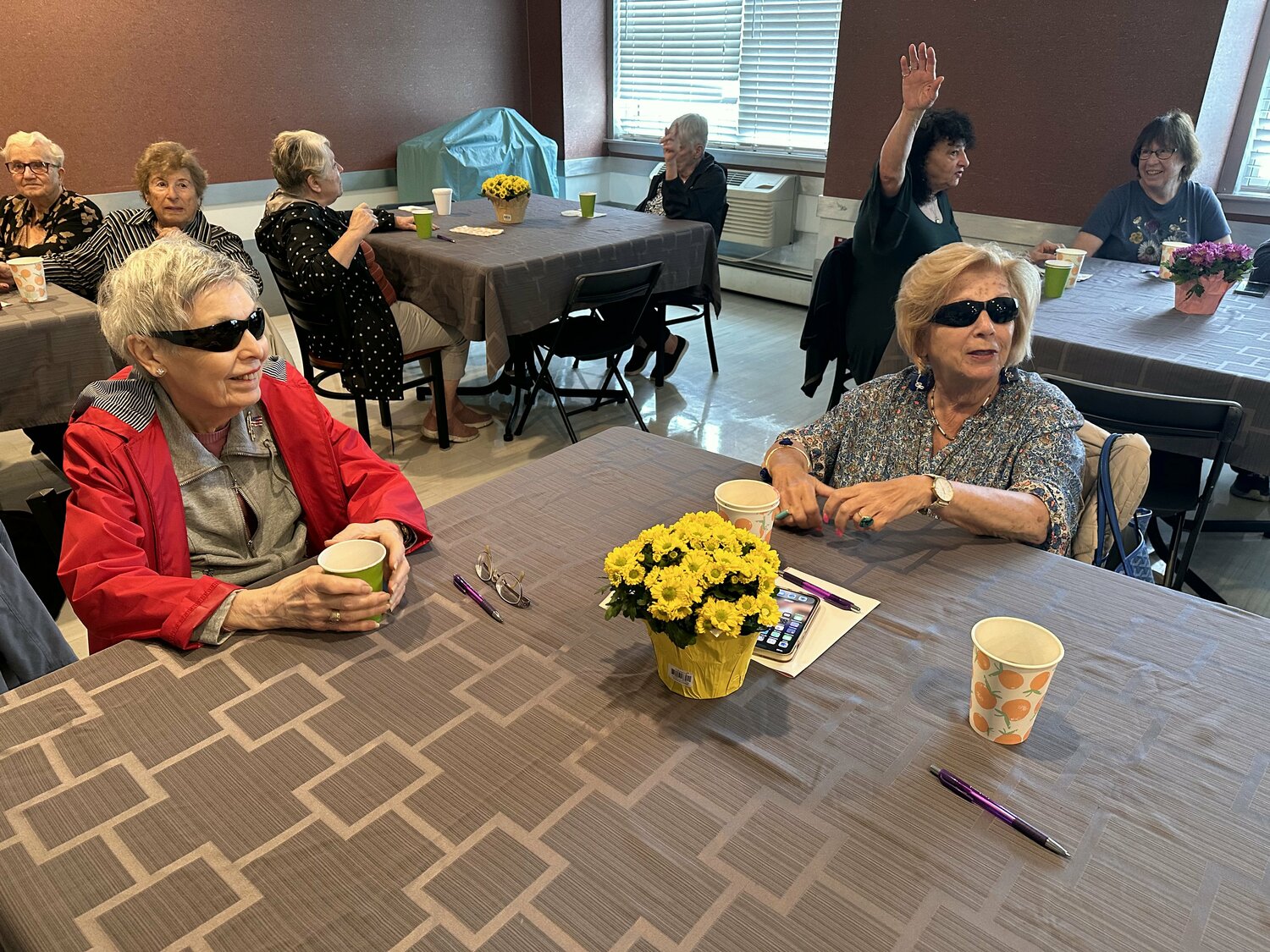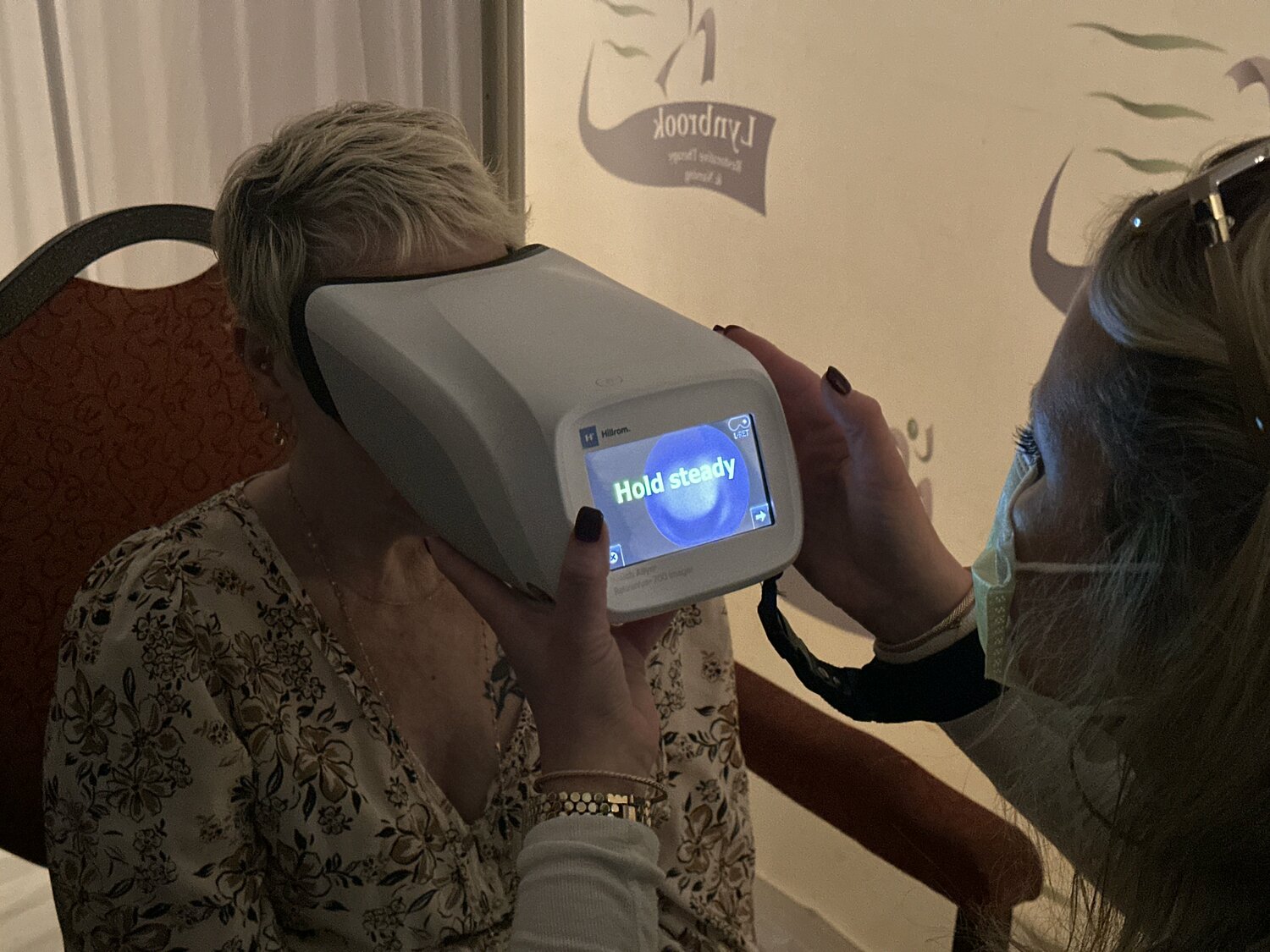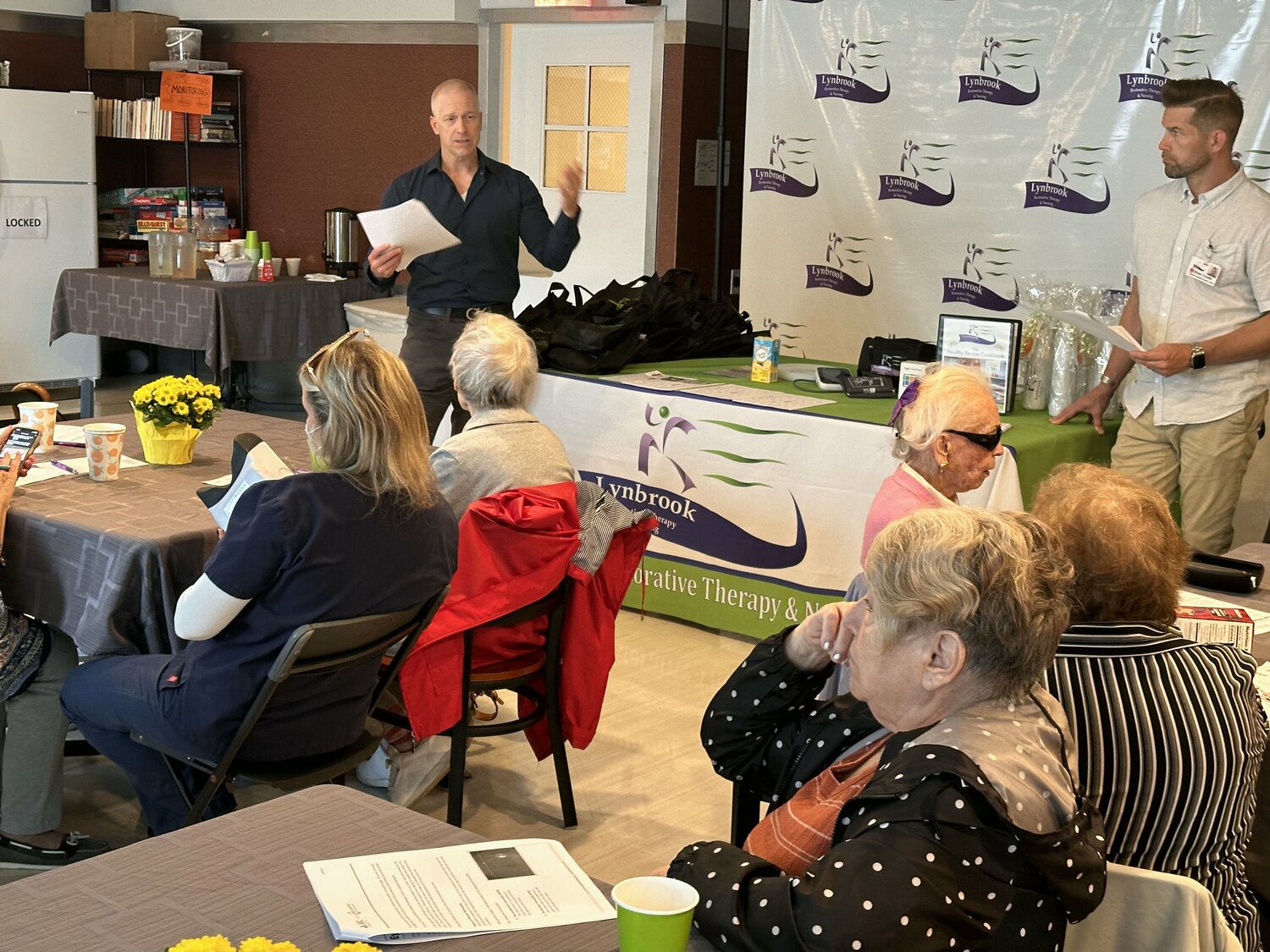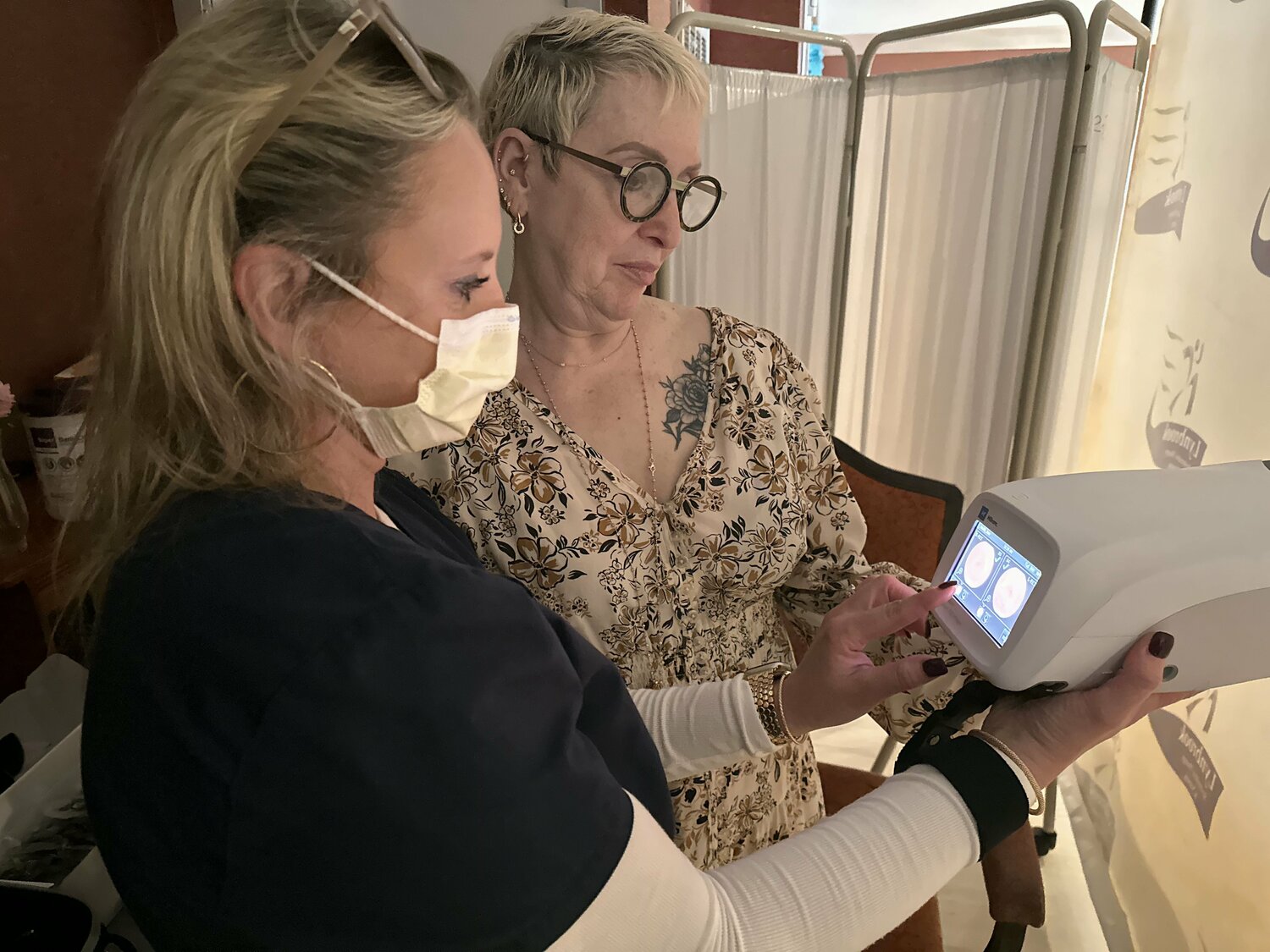Tuesday, June 18, 2024
Seniors take part in free retinopathy screenings
Seniors who have diabetes at Lynbrook Restorative Nursing and Therapy center received free eye checks last Thursday.
Usher Eisen, optometrist and CEO of Visualize Eye Care, provided the seniors with free retinopathy screenings. Retinopathy is an incurable eye condition that causes vision loss and blindness in people living with diabetes. The disease often goes undetected, so it is critical for people living with diabetes to receive annual screenings.
Brian Cordts, director of the center’s diabetes management and education program, said that this event was to make seniors with diabetes understand the importance of a healthy eye checkup routine. The screenings were non-invasive and didn’t require any eye drops. However, to make their eyes dilated, the seniors wore sunglasses for a few minutes and then had their eyes looked at by Eisen in a dark section of the room.
“Basically, I take photos of the back of their eye,” Eisen said. “And you can spot macro degeneration, glaucoma.”
The pictures taken of the seniors’ eyes will be sent to them so they can take it to their doctor.
The ultimate goal of these screenings was to look for non-proliferative retinopathy and proliferative retinopathy. If there is a sign of retinopathy, it will show a presence of abnormal cell growth within the cells of the affected retina tissue. The sooner that retinopathy is diagnosed, the better the chance is of preventing it from progressing.
For patients in the late stages of retinopathy, there may be floaters in their vision. These are caused by blood leaking from swollen blood vessels in the retina. Even if the floaters disappear, that doesn’t mean your retinopathy has improved, but rather, it means that the blood from the blood vessel was absorbed into the tissue of your eye.
“This is preventative,” Cordts explained. “There’s shots, injections, radiation, and different therapies that can help and then all the way up to surgical procedures.”
After the screenings, the seniors took part in diabetic bingo, which was dubbed “Diabingo.”
“It was a fun way to get them informed,” Scott Apgar, director of the center’s diabetes management and education program, said.
Some of the words on the Diabingo bingo card included hypoglycemia, glucose, fats, carbohydrates, and more medical terms.
HELP SUPPORT LOCAL JOURNALISM
The worldwide pandemic has threatened many of the businesses you rely on every day, but don’t let it take away your source for local news. Now more than ever, we need your help to ensure nothing but the best in hyperlocal community journalism comes straight to you. Consider supporting the Herald with a small donation. It can be a one-time, or a monthly contribution, to help ensure we’re here through this crisis. To donate or for more information, click here.
Sponsored content
Other items that may interest you













